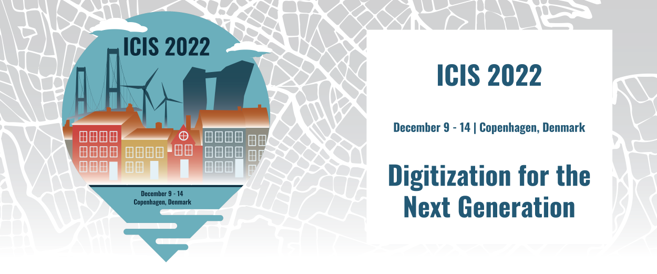Loading...
Paper Number
1073
Paper Type
Complete
Description
Although dialectical inquiry has been sporadically and selectively applied in the Information Systems (IS) discipline, and premier IS journals increasingly welcome dialectical inquiries, we lack methodological guidance on its application and evaluation, hindering its adoption as an important and valid IS research method. In response, we present a critical analysis of general dialectics literature and 63 extant IS dialectical inquiry publications in 18 journals spanning three decades, revealing that there is a growing and sizeable community of IS researchers using dialectical inquiry explicitly or implicitly to examine how sociotechnical phenomena change. Based on this analysis, we synthesize six principles for dialectical inquiry that are firmly rooted in dialectical philosophy, evidenced in IS publications, clearly distinct from each other, and together comprehensive. As such, our contribution can help IS researchers, reviewers, and editors to extend and solidify their methodological repertoire.
Recommended Citation
Ciriello, Raffaele Fabio and Mathiassen, Lars, "Dialectical Inquiry in Information Systems Research: A Synthesis of Principles" (2022). ICIS 2022 Proceedings. 1.
https://aisel.aisnet.org/icis2022/adv_methods/adv_methods/1
Dialectical Inquiry in Information Systems Research: A Synthesis of Principles
Although dialectical inquiry has been sporadically and selectively applied in the Information Systems (IS) discipline, and premier IS journals increasingly welcome dialectical inquiries, we lack methodological guidance on its application and evaluation, hindering its adoption as an important and valid IS research method. In response, we present a critical analysis of general dialectics literature and 63 extant IS dialectical inquiry publications in 18 journals spanning three decades, revealing that there is a growing and sizeable community of IS researchers using dialectical inquiry explicitly or implicitly to examine how sociotechnical phenomena change. Based on this analysis, we synthesize six principles for dialectical inquiry that are firmly rooted in dialectical philosophy, evidenced in IS publications, clearly distinct from each other, and together comprehensive. As such, our contribution can help IS researchers, reviewers, and editors to extend and solidify their methodological repertoire.
When commenting on articles, please be friendly, welcoming, respectful and abide by the AIS eLibrary Discussion Thread Code of Conduct posted here.



Comments
18-Theory